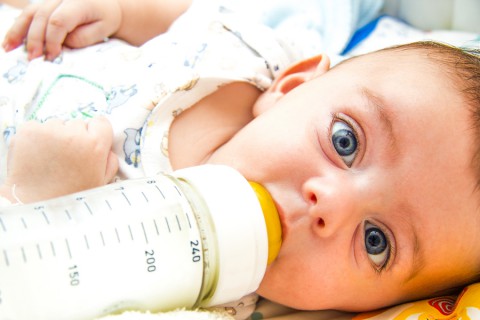 Milk-sharing, an option for mothers who are unable to nurse their babies, may be unsafe if the breast milk has been purchased online.
Milk-sharing, an option for mothers who are unable to nurse their babies, may be unsafe if the breast milk has been purchased online.
A study published in the journal of the American Academy of Pediatrics showed that breast milk purchased from online sources frequently contained dangerously high amounts of bacteria.
While it is normal to find some bacteria in breast milk, high levels could be harmful to infants. In addition to bacterial and viral contaminants, researchers warn that consumers may also be purchasing milk tainted with pharmaceutical products.
“Infants consuming this milk are at risk for negative outcomes, particularly if born preterm or are medically compromised,” stated the conclusion of the study.
High levels of bacteria, including staph, strep and salmonella, were found in about 75 percent of the human milk purchased from online suppliers.
For premature or medically fragile infants, the Human Milk Banking Association of North America offers screened and pasteurized milk donations to babies who are most in need, often in hospital settings.
Since there are often more babies in need than there is milk to buy, using H.M.B.A.N.A. is not usually an option for other families with less critical situations.
Though buying breast milk online may be convenient, mothers might not realize the potential danger in getting milk from unscreened sources.
Breast milk is not regulated by the Food and Drug Administration, and California, Maryland and New York are the only states with milk bank regulations.
Pasteurization kills dangerous bacteria, but it also causes breast milk to lose some of its other health benefits. Milk-sharing groups, often organized locally, aim to help babies get the full nutritional benefits of breast milk.
Midwives should help educate their clients about the potential risks of purchasing human milk online and help them find the right solution to keep their babies well-nourished and healthy.









